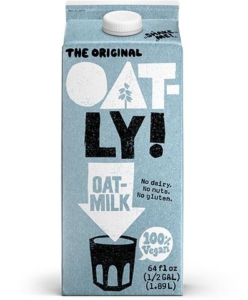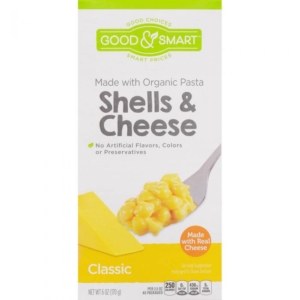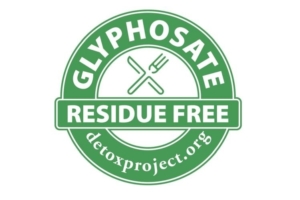January 7, 2019
By: Carrie Schaefer
At Linkage Research, we keep a pulse on consumer trends in the free from, better for you, and natural food marketplace via our monthly Free From Forum Market Monitor. Based on the latest consumer insights and marketplace monitoring, we have put together our predictions of what consumers will be asking for more of out of the natural food marketplace in 2019.
MORE PLANT BASED
Plant-based has been growing rapidly in the past few years, but we believe exponential growth is on the horizon. In our Plant Based Consumer Profile report published last month, we shared that in 2018, 16% of consumers considered plant-based a priority and an additional 34% are experimenting with the trend. While philosophies like vegan can feel restrictive because they focus on what is being eliminated, plant-based is more broadly appealing as it encourages more of a good thing. Add to this Beyonce and Jay-Z’s call to become vegan, and the enormous growth in Veganuary, and we anticipate you’ll hear your consumers demanding even more options.
Restaurants and food service are responding too. Uber Eats reported that delivery of plant-based meals is up and rivaling traditional delivery dishes like pizza and Chinese. The most traditional meat-based eateries are eyeing plant-based, with McDonalds adding a plant-based burger to its menu in Chicago and rolling out vegan Happy Meals in Ireland. And check out your work cafeteria for new plant-based offerings – Sodexo, a leading foodservice provider, announced that it has added 200 plant-based items to its menus.

MORE OPTIONS TAILORED TO DIET PHILOSOPHIES
Big data, artificial intelligence, and DNA testing are satisfying consumer demand for personalization, from online shopping to vitamin rituals. We’re not surprised to see this trend has extended to eating and the American diet as well. In 2018, the Free From Market Monitor showed that 49% of consumers are following a personalized eating philosophy such as Whole30, paleo, and keto.
Major manufacturers are catering to consumers in this space – this year Kraft Heinz acquired the Primal Kitchen brand which offers a line of products targeted to the paleo eating philosophy. Meal delivery services, like Caveman Chefs and Pete’s Paleo, have launched subscriptions targeting eating philosophies. And not to be left out of the trend are restaurants – on January 2, Chipotle announced they would be launching lifestyle bowls to cater to Keto, Whole30, and Double Protein diets.
MORE ACCESSIBLE NATURAL AND ORGANIC OPTIONS
60% of American consumers reporting they feel it’s important to choose foods that are natural, organic, or non-GMO and this demand for natural transcends socioeconomic status. The industry is taking notice to make healthy alternatives more accessible. Dollar General announced the launch of 125 better-for-you items under its ‘Good & Smart’ private brand. The goal is to bring these healthy alternatives to value-conscious and low-and-fixed income households.
Getting a healthy meal is also literally getting more convenient. Kroger and Walgreens announced a partnership to test offering Kroger’s Simple Truth brand and Home Chef meals in Walgreen’s stores. The rise of fast casual restaurants is creating a convenient way to eat better-for-you foods on-the-go. Established chains like Panera are focused on sourcing transparency and calorie content while emerging chains like Freshii and Sweet Green are creating a new vision for quick service and healthy choices.

MORE NATURALLY SOURCED PERSONAL CARE PRODUCTS
With 15% of consumers reporting that they want to buy personal care products without artificial ingredients (Nielsen 2018), consumers are asking for more transparency in the products they use on their skin. Regulators have responded with the passage of the FDA Personal Care Products Safety Act (2017) which provides them with more power to regulate beauty ingredients and ban toxins in cosmetics and personal care products. With this shift, we are seeing a response in the industry to bring more transparency and clean ingredients to skin care.
Several companies with a ‘farm to face’ philosophy have emerged, such as juice BEAUTY and Lily Farm Fresh skincare which are bringing natural to the beauty segment through sustainable farming, fresh ingredients, and transparent practices. Ingredient suppliers, like Royal DSM, are working with organic farmers to ensure the right supply of botanical ingredients. And retailers are using this trend to create destinations for natural personal care. Target is offering several clean label brands, including Acure, Bare Republic, and Botanics.
MORE VERIFICATION OF WHAT’S INCLUDED (AND NOT) IN PRODUCTS
Consumers want to know what’s in, and not in, the food they buy (67% according to Nielsen). With Millennials leading the way, consumers no longer blindly trust manufacturer’s claims. This is giving rise to a number of new certifications across the industry.
A hot button right now is glyphosate, one of the ingredients in Roundup herbicide, which has recently been listed as a carcinogen and has given rise to two certifications, The Detox Project and BioChecked. Another certification category to watch is Regenerative Organic Certification, which goes beyond organic and creates a sustainable ecosystem and supports the environment. Regenerative agriculture builds on organic certification to improve soil health, worker equity, and animal welfare, while providing a pathway to mitigating climate change by sequestering atmospheric carbon in the soil.

MORE SUSTAINABLE PRACTICES
According to our Sustainable Consumer Profile, one in five households reported that it was important to them to buy sustainable products. Consumers are leaning on companies, not the government, to lead the way. In fact, 53% of consumers think brands can do more to solve social ills than the government (Edelman Earned Brand Report, 2018). Brands are taking notice and responding with socially responsible practices from sustainable farming to reducing waste.
Annie’s Homegrown (General Mills) is bringing their farming practices to the front of the package, with the launch of a limited-edition line of products sourced from regenerative farms that help sequester greenhouse gas carbon from the atmosphere. As part of its waste-reduction effort, Kellogg’s has recently launched an initiative to upcycle surplus cornflakes to make beer, and Kroger has launched a zero waste, zero hunger initiative with the goal of reducing hunger and getting to zero waste by 2020. And let’s not forget about efforts by IKEA to reduce packaging and Starbucks’ commitment to eliminating plastic straws by 2020.
We’re excited to see how the industry responds to these trends in 2019. We’ve already purchased our tickets to Natural Products Expo West and hope to see you there!
Carrie Schaefer is the Vice President, Strategy & Marketing at Linkage Research & Consulting, Inc. Carrie has over 15 years of experience leading and working with brands to identify new trends, insights, and strategies to grow their business. For more insights contact Carrie at carrie@linkageresearch.com or visit https://linkageresearch.com/free-from-forum/


